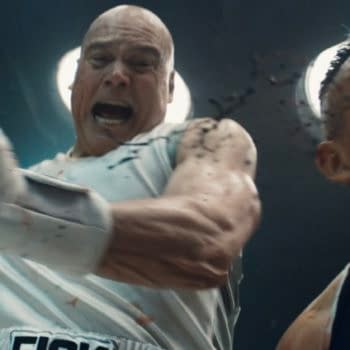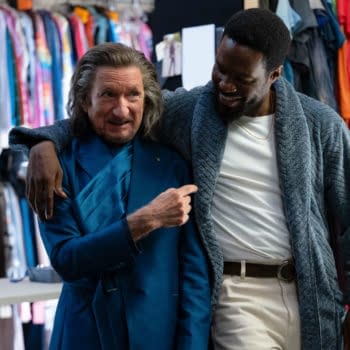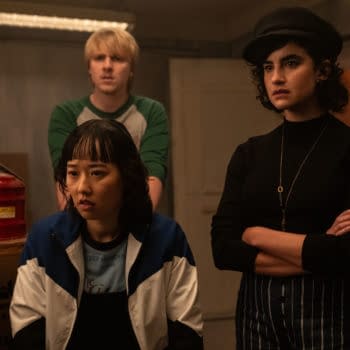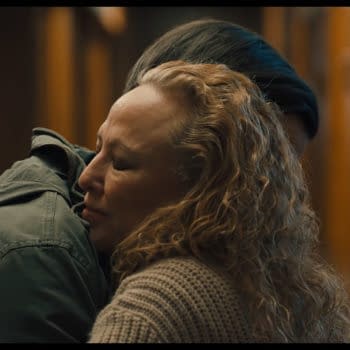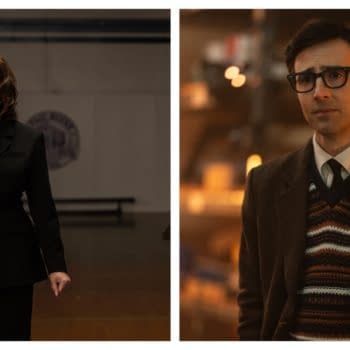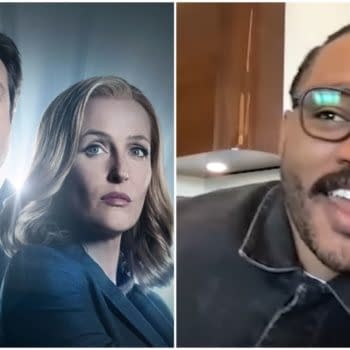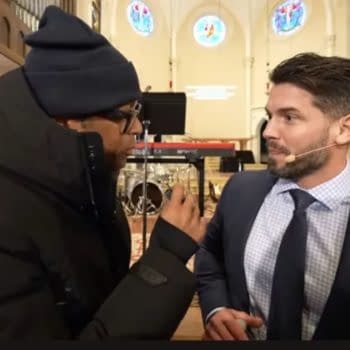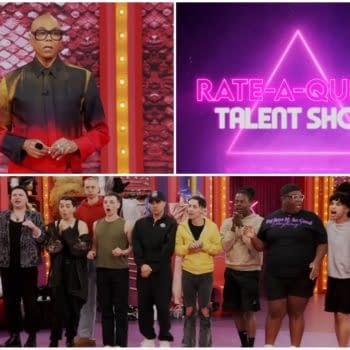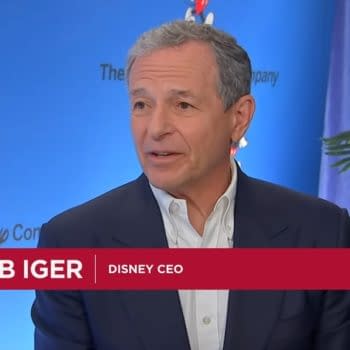Posted in: HBO, Preview, streaming, TV | Tagged: Ava DuVernay, benjamin bratt, dmz, exclusive, hbo max, interview, Robert Patino, rosario dawson
DMZ: Roberto Patino on Adapting Graphic Novel, Future Seasons & More
The moment Roberto Patino read the dystopian comic DMZ, he knew he had to adapt it for the screen. The prospect of a second American Civil War hits all close to home considering the current state of toxicity within our political discourse. Given the nature of the ambitious project, the writer who's also worked on HBO's Westworld and FX's Sons of Anarchy knew he had a long road ahead of him.
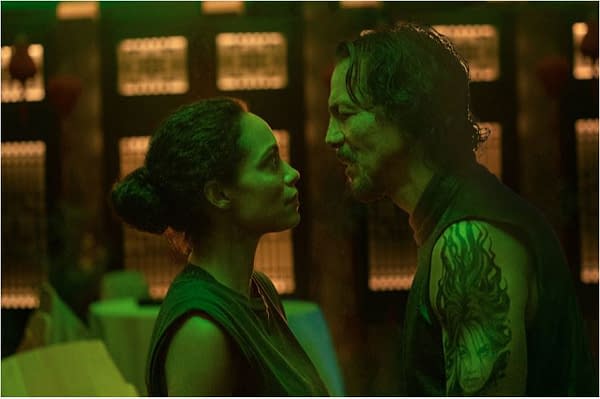
Bleeding Cool: What was it about DMZ then intrigued you and wanting to adapt it as a TV series?
Patino: I was in Boston and Newbury Comics when I read it when it first came out in 2005. I was terrified because it was a totally chilling, demented idea that I couldn't look away from. I devoured every single issue. When I came back to it in 2016-7, this comic book took on a whole new meaning. Suddenly, the concept of war in our own backyard, which back then, felt like a classic comic book hook was very immediate. It was very in-your-face and it is very tender.
So I kind of saw an opportunity there to pursue a lot of the politics of the comic and really try and tell to turn this world inside out to tell a story of people coming together. [It's] a story of hopefulness and so to that end, we assumed our worst possible circumstance. I don't really dwell on the politics of how we got there, et cetera. I started our story in it eight years later and focused on what happens next. That's the uphill climb that I was interested in. When you ask ten people how you might get the civil war, you're going to get ten different answers, and frankly, I'm not interested in any of them.
I'm not interested in spinning on any sort of divisive ideas or divisive rhetoric. To me, the comic needed to be updated and reinvented, not just because of the comic itself. I almost revel in the concept of Manhattan being turned into a war zone, because it was an outdoor idea, right? It's a terrifying thing that you wanted to kind of live in that sort of experience vicariously, but it just couldn't hold anymore. Beyond that, the comic is fundamentally masculine, testosterone-fueled piece of property. There are salient women in there who play significant roles that are just completely underdeveloped. My favorite character of the comic, even back then, was Zee from her introduction to saving Matty Roth to just the sort of system of support that she plays. You've got this fearless, dope Latina who puts herself in harm's way regularly to save people. She's the one person doing something generative in this broken land. She had a whiff of a backstory, maybe she was pretty two-dimensional. I think to hit on that for a second. Matty Roth is the photojournalist who gets abandoned in the DMZ, and it works for the comic. It works for the comic because as a photojournalist, he's passive, observing, and serves as a proxy for the audience, who by the way, wants nothing more than to see the entire fucking DMZ.
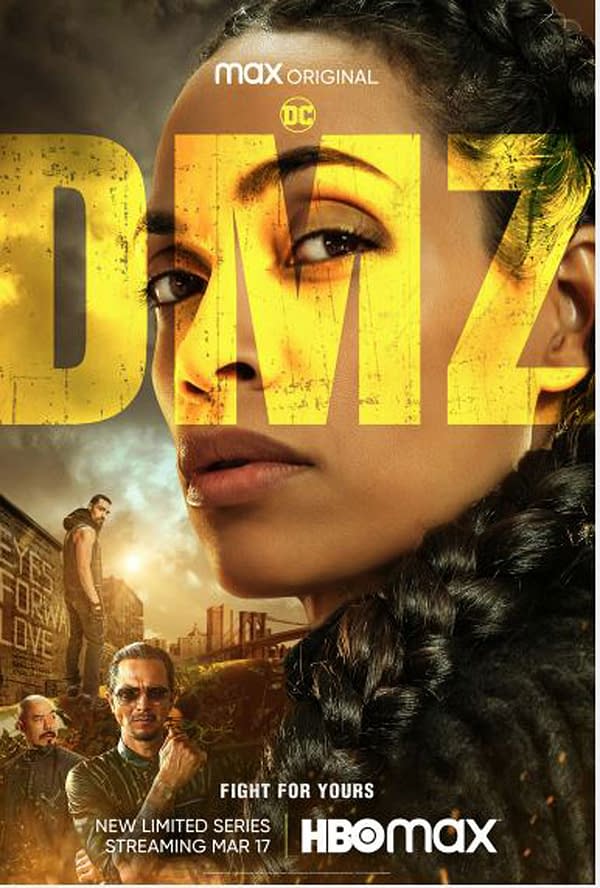
BC: So what percentage would you say of the original comic is kind of retained into the TV adaption?
Patino: It's hard for me to quantify that. I would say the character Parco Delgado exists. I reinvented Wilson and he's essentially the same but much younger. Zee now is a new incarnation. She's a mother, but the spirit of all of these people and the world remain. I just kind of looked at it from a different angle in starting later in the story, you're inherently starting the base of an upward climb. The ideas that I was interested in spinning on were at the top of that climb. It's the story of the construction of an interdependent community. You take ten percent of Manhattan and ten percent cross-section of Manhattan, you're going to get people from all walks of life. What a cool opportunity to showcase a displaced and abandoned collection of these people working together and finding a way.
BC: Is the series set for the one-and-done limited series or can we expect future seasons?
Patino: There's absolutely room for expansion. I had conversations in passing about the DMZ is a huge world. It's a world that's predicated on either self-reclamation or reinvention itself, which means that it's full of incredible characters. I think, in any case, the limited series is sort of four-hour movie experience is the right format for any of these other stories and I have plenty of stories to tell about the DMZ. The answer is 'absolutely.' There's the good fortune to continue to live in the DMZ. The other thing I will say about the diversity there. One of the cool and really exciting ideas that drove an attraction to this property for me personally was just the opportunity to elevate POC front and center. We have Rosario Dawson and Benjamin Bratt, who are just these massive talents, but we typically see as 'the exotic,' typically as the partner to the white lead. We get to see them front and center in a way you've never been able to see them before. The gloves have come off and their ferocity, magnetism and grace are all in the mixture. So kind of anchoring the show around these two is Freddy Miyares, Hoon Lee, Sydney Park, Jade Wu. You have this super colorful cast, and that's something that's near and dear to my heart. Because it's easy to say, we've got such a long way to get to towards true representation and that's true, but it's much simpler than that. It's just the world we live in. These are people who exist and these are people who should exist in our consumption of entertainment. So to be able to partner with Ava [DuVernay] and Ernest Dickerson, who's a legend unto itself, and to create this world, this inclusive world. It's something I'm very proud of.
DMZ is available to stream on HBO Max.






